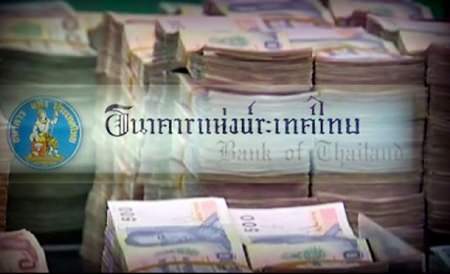BANGKOK, Oct 16 – Thailand’s Money Policy Committee (MPC) voted unanimously today to maintain the policy interest rate at 2.5 per cent, a senior central bank official announced.
Paiboon Kittisrikangwan, Bank of Thailand (BoT) assistant governor, said the decision was based on the fact that the Thai economy grew more slowly than previously assessed, but began to stabilise and showed signs of improvement in some sectors.

Though exports started to pick up in accord with the global demand, private consumption and investment have stabilised, leading to an expectation that the Thai economy would slowly strengthen.
The relaxed monetary policy would continue to support economic restoration, he added.
Mr Paiboon said the MPC also agreed to reduce the growth rates of gross domestic product (GDP), exports and inflation, and an official announcement would be made in the money policy report, due for release on October 25.
The major factor for a GDP growth reduction is the government’s delay in disbursing the national budget, he said.
Other risk factors are the US debt ceiling which must be closely monitored, he said, adding that despite the US decision to postpone its decision on the debt ceiling to late this year, the global money market remains volatile since the consequences of damages are unpredictable in case the US fails to pay its debts.
US bonds, with a circulation at US$5 trillion in the global market, are major money mechanisms, and a liquidity problem could jack up borrowing capital, he said.
Returns from US bonds are not abnormal and the MPC has put its weight on the issue, said Mr Paiboon, adding that the BoT was instructed to be well-prepared for the situation and be flexible in adjusting the money policy to cope with the exchange market and capital flow volatility.
The BoT assistant governor said the MPC also emphasised the significance of the kingdom’s financial status given foreign investors’ interest in the economic structures of newly-emerged countries, particularly the issues of balance deficit and high debts due to abrupt capital outflows.




